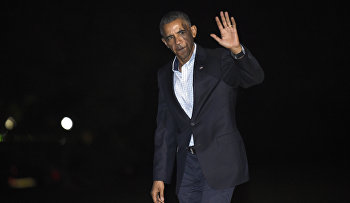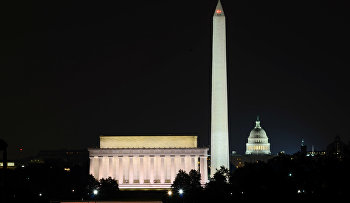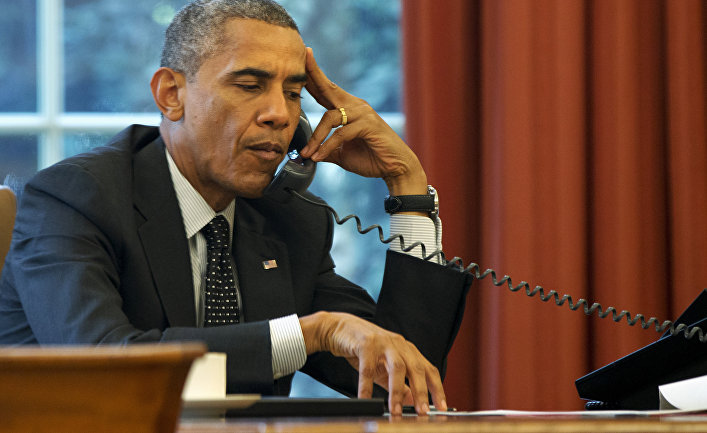Over the past week, US President Barack Obama has had two phone conversations with Turkish President Recep Tayyip Erdogan.
During their first call, President Obama voiced his condolences regarding the terrorist attacks Ankara had suffered. Yet by the second, the “condolences” were connected with Syrian politics (despite the Turkish government's stubborn refusal to accept responsibility).
Informed sources close to the White House claim that Obama's second call confirmed the following fact yet again – that Turkish foreign policy in Syria “was reduced to zero.” It's a perilous situation. Assad represents a threat to Turkish interests — as do the “Democratic Union” Party (PYD) and People's Protection Units (YPG) who are affiliated to the PKK Kurdistan Worker's Party. Military support for one of these threatening groups is being provided Turkey's “strategic partner” in the East – Russia. Another is receiving military aid from Turkey's “strategic partner” in the West – the United States. Moreover, the USA and Russia are actually fighting between each other to keep the Syrian Kurds in their ranks, and under their control. And of course, no one has the slightest though for the idea of “Heaven forbid that we offend Ankara.”
Turkey warns Russia, US against helping #Syria’s Kurds http://t.co/W0q67dUCDb pic.twitter.com/WPO2f2Ly7J
— RT (@RT_com) October 14, 2015
Recently Ankara – frustrated by two global powers – has begun to voice its annoyance more openly. Last week, the Russian and American ambassadors in Ankara were each separately summoned to the Turkish Foreign Ministry — where they were read the Turkish government's response. Such brusque diplomatic barbs point up the underlying problems in the relationship. The US administration was so far perturbed by the incident that Obama had a high-level phone call with Ankara, in which his determination to stick to his present policy was voiced.

A repeat performance of the Kobani phone-calls
There are those in Washington who believe that Obama's last call was a near-repeat of his call during the Kobani Kurdish crisis. It will be remembered that Obama's call about Kobani was made after the US – entirely disregarding the dangers posed to Turkey – sent aid directly to the Kurds fighting with ISIL. As a result of the calls, Turkey made a u-turn on its former policy, and opened a border corridor for the Peshmerga. The US, however — hastily rethinking its plans after Russia's engagement in Syria – resolved to up its military support for Kurdish and Arab guerrillas who are fighting ISIL – and has once again presented Turkey with a “fait accompli.”
We can only guess whether Erdogan chewed Obama's ear over the phone. “Is this what you call a strategic partnership?” It's very clear that the US didn't see the slightest need to consult Turkey before taking the important decision to support the Kurds in Syria both militarily and politically. Otherwise American ambassador John Bass wouldn't have been summoned by the Turkish Foreign Ministry.
#BREAKING #Obama, #Erdoğan speak over phone, agree to step up campaign against #ISIL http://t.co/Bz5TiGIbPG pic.twitter.com/Ynqjd42GeK
— Today's Zaman (@todayszamancom) October 15, 2015
People may well ask why the Americans rush so eagerly to Turkey's anger – when Turkey is of such strategic significance to them? After all, it's not something they usually do — or at least they try not to do it. But the US is a global power which will — if necessary — force its own policies down the throats of its allies… especially in cases where opinions are diametrically opposed. Rather similar, in fact, to the way America cake-walked into Iraq in 2003. Ignoring all of Ankara's warnings, the USA invaded Iraq, and demanded that Turkey open a northern front. The question here goes far beyond questions of “who is right or wrong.” The usual tone in international relations is stronger.
Turkey's hand has no trump cards left
Let's now rephrase the question posed earlier. Can Turkey afford a stand-off with the USA? The imbalance of power makes this a zero-sum option. If the Americans hadn't already received the go-ahead to for using Turkey's Incirlik air-base — and other bases in Turkey — they would probably have tried harder to ingratiate themselves with Ankara until they finally got such permission. Additionally, Turkey's trade situation is weak – the economy is in crisis, social cohesion is rocky, there are threats in the region, with weak governance and internal infighting chipping away at power. Turkey isn't too steady on its feet at the moment.

Judging from statements issued by Obama administration officials, their relation with Ankara is feisty. But the way that reality differs from what's said at the microphones becomes clear from information from unnamed sources. One example is the anonymous Capitol Hill tip-off in a piece by Tim Arango and Anne Bernard in the 14th-October New York Times. “Despite opening Incirlik Air Base in Turkey, and the willingness of the Turkish government to join Allied air-strikes against ISIL targets, the USA – no matter how much this may anger Ankara – will do whatever it wants, whenever it wants.” This is what Obama will have told Ankara, using “the right words,” during his phone conversation with Erdogan.
USA is taking the rise out of Ankara
As though thumbing its nose at Ankara, the US insists the military aid it's sending to Syria is not for the PYD or the Kurds – no, it's for the Arab opposition. On Thursday an official Pentagon aide, Peter Cooke said (or perhaps, mis-said) that part of the weapons shipment sent last week fell into the hands of the Kurds. The Pentagon then made a rapid correction, saying that last week's weapons were safely delivered to Syrian Arabs. Meanwhile an interview with PYD leader Salih Müslim confirmed that their forces had taken delivery of 50 tons of US weaponry. This is a group which the US has been supporting in the Syrian north-east, with the aim of re-taking the so-called capital, Raqqa, from ISIL – and whose contingent comprises 25,000 YPG Kurds alongside 5,000 Arab guerrillas. Even if these weapons were formally given to the Arabs, it's hard to see how the YPG would not have got their hands on them?
Clearly, in its war against ISIL in Syria, the USA is not going to bother with niceties of distinction when providing military aid to any groups which its NATO ally Turkey views (rightly or wrongly) as a threat. Ankara, in turn, hopes to win a proxy war against the Assad regime by arming groups whom the USA ranks as terrorists. (Just think about the Turkish trucks which were full of weapons when pulled over). We can see clearly that neither Ankara nor the USA is sticking to the principles of alliance when it comes to upholding their priorities and interests in Syria.






